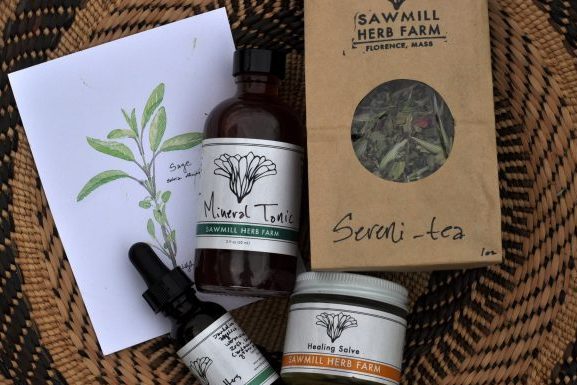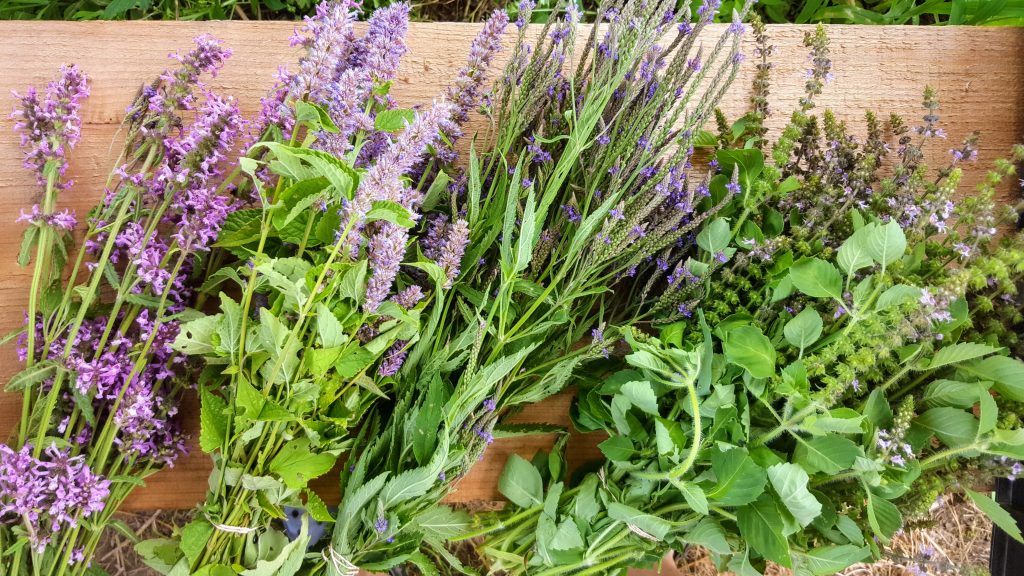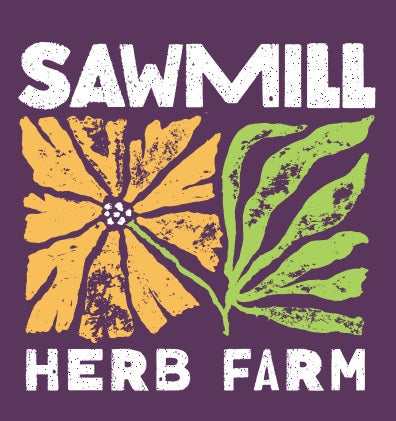Herb Profile: Motherwort
Motherwort, Leonurus cardiaca, Lamiaceae

Motherwort is a member of the mint family and while native to Europe it has crossed over the Atlantic and set up life as a weed in some parts of North America.
Motherwort, as suggested by its’ name, is indicated for use with the uterus and with parenthood. Herbalist Susun Weed suggests that motherwort tincture will provide fast relief for menstrual cramps when taken 5-10 drops at a time, at the first moment of pain and taken thereafter every 15 minutes as needed. Motherwort tones the uterine muscle and will eventually diminish cramps within four months. Motherwort is also an ally to menopausal people and can help with hot flashes, water retention and mood swings.
Motherwort also has an affinity to the heart, as suggested by part of its latin name “cardiaca.” It is used as a heart tonic, and in particular for nervousness with heart palpitations. The acrid bitterness of motherwort may calm the sympathetic nervous system and aid with nervous restlessness, wakefulness, disturbed sleep and anxiety. The use of motherwort tincture during these moments may help relieve nervousness. A dose of tincture 10 – 20 drops taken several times a day can lower blood pressure and strengthen electrical activity in the heart. Daily use may help new blood vessels grow to the heart.
Susun Weed also recommends motherwort as a pain reliever and useful in your herbal first-aid kit. Motherwort can reduce lower back pain, fibromyalgia, and chronic fatigue with 10-20 drops of tinctures, every 15 minutes until relief sets in.
Motherwort should not be used during pregnancy. Excessive use may interfere with other cardiovascular treatments.
Preparations
Dry the plant and use for infusions (1-2 teaspoons dried herb, steeped for 10-15 minutes) or make a fresh-herb tincture in high proof vodka. Matthew Wood recommends smaller doses of the tincture, while Susun Weed supports more hearty quantities.
Heat Relief Infusion (from Herbal Recipes for Vibrant Health by Rosemary Gladstar)
Around 75% of menopausal people experience hot flashes. This infusion seeks to normalize the body’s response to these experiences and help to ground a person having a hot flash. Combine the following: 2 parts motherwort, 2 parts black cohosh, 2 parts sage, 1 part blue vervain, 1 part chaste tree berry and mint to taste. Use 1 teaspoon of herbs per cup of water and let steep for 30 minutes. Strain and drink in ¼ cup doses throughout the day, up to 3 cups.
Heart-Strengthening Tonic (adapted from The Essential Herbal for Everyday Health by Holly Bellebuono)
This is a nerve-soothing tea to strengthen the muscle action of the heart. It can be very warming and is good in situation where the heart (and/or emotions) feels stagnant, cold or “stuck.”
Combine 2 T dried hawthorn flowers, leaves or berries, 2 T dried peppermint and 1 T dried ginkgo leaves in a 1-quart glass jar. Pour enough boiling water over them to fill the jar. Steep for 8 minutes. Add 1 t dried motherwort and 1/4 t dried yarrow leaves and steep for an additional 2 to 3 minutes but no longer, as these herbs are quite bitter. Strain the liquid and sweeten to taste with honey, stevia or maple syrup. Drink as desired.
Contraindications: Not to be used for bowel complaints with inflammation – pain on pressure, tongue dry, with reddened tip and edges (Matthew Wood). The tea and tincture are safe for general use but overindulgence can cause stomach aches.
Nourishing Parent Tonic (from Holly Bellebuono)
This combination of herbs is at once calming and nutritious, and it will act as a gentle digestive tonic as well. Note: the tea is bitter
As a tincture: Combine 2 teaspoons dried alfafa leaves, 2 teaspoons dried nettle, 1 teaspoon motherwort and cover with 1/2 cup vodka or brandy. Steep for a month before straining. Use 10-25 drops in a cup of warm tea and allow time for the alcohol to evaporate before drinking.
Cautions/Contraindications
Do not use during pregnancy.
🌿 Grow, Harvest & Learn with Us This Season! 🌿
Whether you're looking to fill your apothecary with vibrant, fresh herbs, start your own garden with strong, healthy seedlings, or deepen your knowledge of herbal medicine, we've got you covered.
Join our Fresh Herb CSA to receive weekly bundles of medicinal and culinary herbs, plus guidance on how to use them. Pre-order seedlings to get a head start on your herb garden with our carefully grown plants. Explore our herbal education programs to learn hands-on medicine-making, plant connection, and more.
Looking for high-quality, certified organic herbs year-round? We also offer dried herbs and small-batch tea blends, thoughtfully grown and harvested to bring you the best in herbal wellness.
Be part of a community that values resilience, self-sufficiency, and deep connection to the land. 💚
Sign up for the CSA, pre-order seedlings, shop our dried herbs and tea blends, or explore our herbal education offerings today!
Disclaimer
These statements have not been evaluated by the Food and Drug Administration. This product is not intended to diagnose, treat, cure, or prevent any disease. For educational purposes only. We do not endorse the websites linked to in the resources and have not extensively reviewed all the information on external pages for accuracy. Everyone reacts differently to herbs and we do not attempt to be completely inclusive in the information and contraindications for each herb. Trust your intuition if something is not feeling right for you.
Shop our Apothecary and Nursery
-

Apothecary Products
Nourish yourself and your family with a certified organic farm grown apothecary ...
-

Nursery Products
Grow your garden. We grow certified organic herb, flower and vegetable starts...


